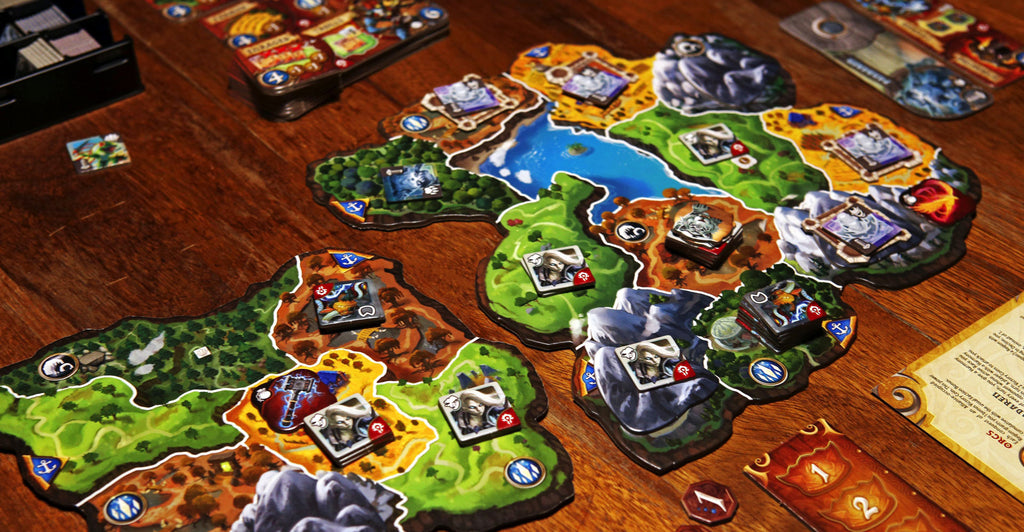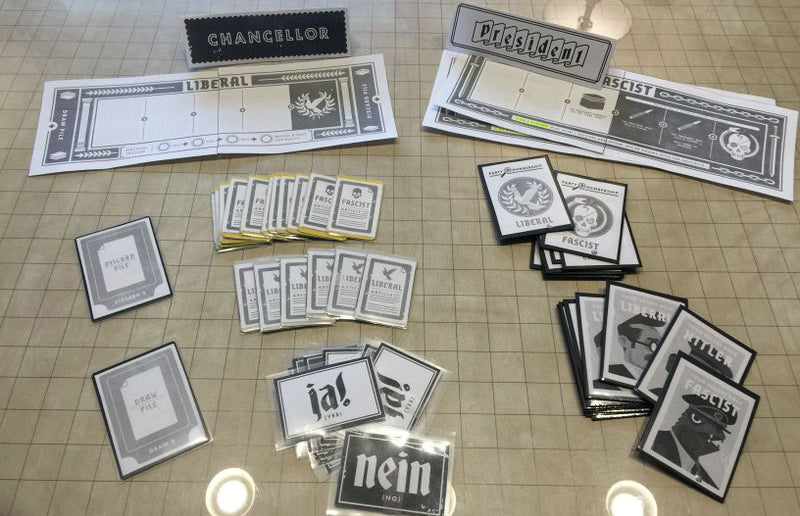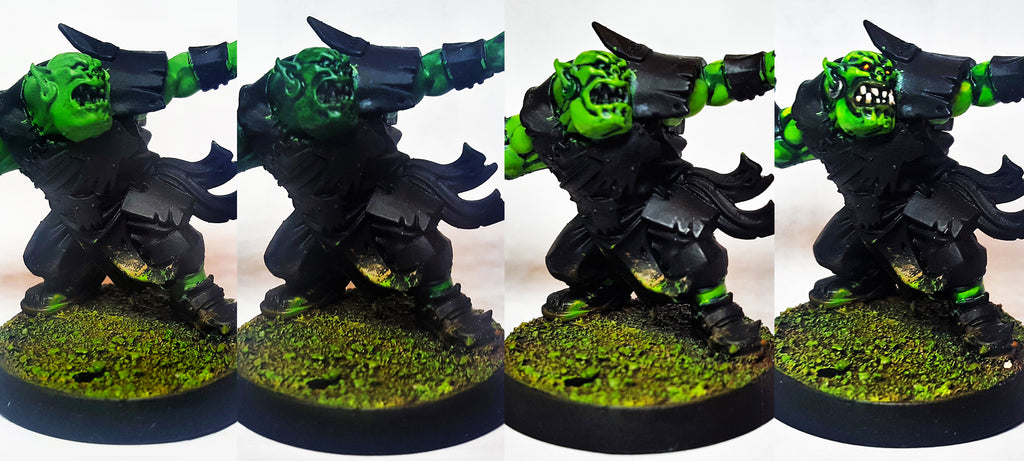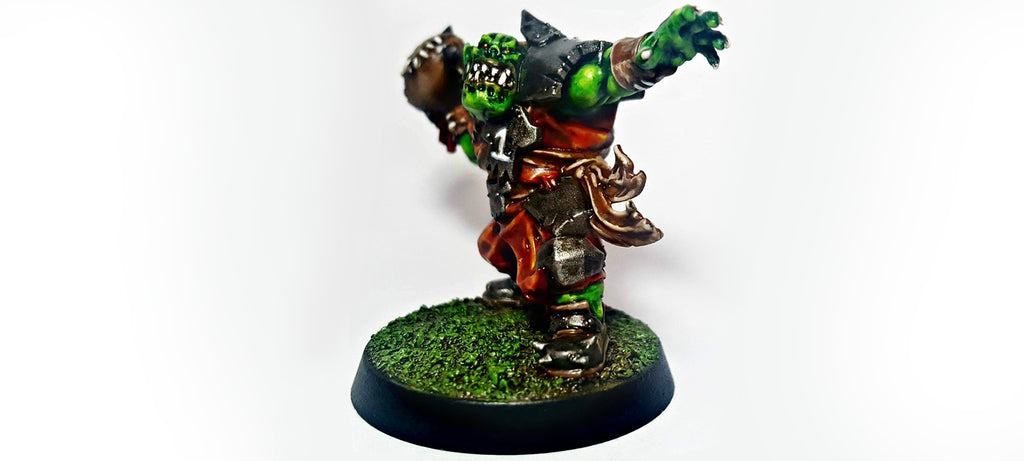 A design and illustration conversation that spans speakers from Finland and Malaysia. A sold out event, smiles all around and an exchange of ideas that led to many an idea and handshake exchanged. This was what passed at the Card & Board Game Case Showcase Vol. 1 at the National Design Centre.
A design and illustration conversation that spans speakers from Finland and Malaysia. A sold out event, smiles all around and an exchange of ideas that led to many an idea and handshake exchanged. This was what passed at the Card & Board Game Case Showcase Vol. 1 at the National Design Centre.
With speakers like Lillian Lee, creator and founder of Say What!, Erica Tham, CEO of Ace Edventure Studio, Goh Choon Ean, creator and game designer of Kaki Lima, Michael Ng, professional Illustrator and Co-Founder of OicFinland and Leos Ng, professional game artist and illustrator, each speaking to their own professional experiences, it was an eye-opening and detailed look at what goes into game design and the preparations needed when one wants to hire an artist for a project just to name two of many interesting points made.

With a gripped crowd and passionate speakers, time flew by and by the end there were many a question that the crowd wanted to ask our speakers but unfortunately, we had to move on to the free roaming period and even though people got a chance to speak one on one with the speaker of their choice, there was only so much time for each person and thus questions were left unanswered. But our moderator Colin Lim picked up on this and gathered enthusiastic questions and responses and due to popular demand, we have picked the more popular ones to be answered here.

P.S. Thank you for turning up to NDC if you did come and if any of this interests you, we hope to see you at the SG Card and Board Game Show Case Volume 2!
Related Article: 5 Weekend destinations to play Board Game in Finland comfortably!
Questions

1. How do I go about networking or finding board game publishers to publish my game?
Lilian: I would suggest joining a local/overseas games meet up. Just remember to go into it with an open mind, be nice and meet more people. Additionally, it would also be good to attend SG Card and Board Game events, ha.
Leos: I would suggest direct emails to publishers, bringing your games to game meetups and if you are confident in your designs, approach game designers during game launch events. Also, if it’s within your budget, get a booth during events (major ones are like Dragoncon in the USA, Doujima, locally) for people to try. Bigger events might even have publishers walking around.
It’s also very important to generate some hype for your game as it will help publishers take more notice of you.
2. What is the board game design process like?
Lilian: Firstly, start with an idea, then check whether there are similar games already out there. Secondly, do up a working prototype to prepare for the playtesting phase. Thirdly, keep reworking the game and work with the ideas of your fellow designers and illustrators till the game is done...Phew!.
Erica: Sometimes we start with a theme or a game mechanic. But with educational games, we sometimes begin with a topic we want to teach first. Particularly if it’s boring! There’s no hard and fast rule to this. But for some people, starting with a mechanic makes the game design tighter and more inflow.
Then, as Lilian says, move on to prototyping. We test the games like crazy (test it till you can be sick of the game sometimes! 😱).
The playtesting phase is where you will probably get many valuable insights to polish the game until it shines like a diamond.
If you can invest a bit of money in your education, (and I highly encourage it) there’s a course on Udemy about creating the card and board games. For a deal, just look out for the sales.
3. What is the process of coming up with an idea for a game and the actual process of creating it?
Colin: Most of the time, I get inspiration for game ideas/mechanics from a gaming experience I had or an idea I have developed or events which I feel would be a good theme for a game. The idea will be constantly buzzing in my head and when it bugs me enough, I will write it down (interestingly enough, a lot of ideas come to me when I am having a shower!) as it means there is an interest in further developing it. Then I pen it down and build a game structure around it.
4. How do you actually decide the theme that will match the mechanics of a game?
Erica: Brainstorm and trial and error. I guess at the end of the day, it also boils down to your target audience and the experience you want them to have when they play your game. For example, if you want them to feel fear and be frightened while playing your game then you want to pick a theme that can convey that experience.
5. Where do you go to get your board games produced?
Colin: It depends on the scale of your game. Currently the games I have produced just needed local publishers on a print on demand level as small print runs.
As for printing up a demo/mockup for the initial marketing of your game, you can use local printers for them. Larger scale printings would require you to turn to China as their factories are well equipped to manufacture them.
6. What’s the most challenging aspect of creating board games?
Lilian: It has got to be the subjective matter of making something that you hope people will be excited and want to play and of course, production. If you are producing your game in China, make sure you or someone there can speak Chinese very well so you can communicate clearly what you want. It would be even better if you can plant yourself in the factory for a bit and sit beside them during the process.
Erica: Testing and refining. Because at the ideation level you are working with yourself. But at the testing level, you are working with others. Their opinions will show you the holes and loose ends in your mechanics and design. At this time, you have to set aside your ego and be able to let go of ideas in your games for the overall good. If you can do that, you give your game the greatest ability to be the best version of itself.
7. Do you choose your playtesters when you do playtest before producing a game and how do you carry those sessions out?
Lilian: I try to choose my target playtesters carefully and get them to be as honest as possible without any hidden agendas.
Erica: Yes, we firstly pick people who we think our target audience is. Also, you also want to choose people who will give you honest feedback that is as detailed as possible, not just answers like, "I don’t like.", for example.
We also generally set criterias we are testing for during each session. If we are just testing the reaction and the mechanics, we normally teach people how to play the game. But if we are testing to see if our rules are written clearly, we get people to figure out the game on their own.
8. @Lilian, what can a game designer do if he/she does not know much about art styles or isn’t sure what's the best art style for the game should be?
Lilian: 1. Read and expose yourself to more design products/ideas/exhibition. It’s a marathon, not a sprint.
2. Befriend good designers who have great tastes and who can be honest with you.
3. Showcase your designs to those who have a lot of experience in the game design industry along with quality designs of their own.
4. Be open with comments/criticism. Do not get defensive over criticism.
9.@Michael, what can the game designer do if the illustrator doesn’t agree with the style of art that has been chosen?
Michael: 1. If it is a collab and not full fees - you can choose or suggest suitable styles that you like or you can compromise a little bit or you can drop the collab altogether.
Do remember you are working as a team and your input should be considered too. If the other side is too iron-handed in their handling of your suggestions then you should leave if you feel the compromise to your vision is too great.
2. If it is a full fee job - you can ask the illustrator to do the job to the best of his/her availability or just ask the artist if there is another illustrator that may be more suited to the project.
10. Where can I playtest my games in Finland?
Colin: The playtesting phase depends on which stage you are at. For your initial playtesting all the way to almost the final stage, it is always better to keep playtesting the game on your own, or amongst close friends and fellow game designers.
When you are ready for public playtesting (meaning you are there to watch a broader section of players interact with your game), drop by board game meetups (Finland Board Games Meetup and Finland International Board Games Meetup) but it is always better to private message the organiser to seek permission first.
At the same time, the Finland Game Makers on Facebook can also be a good source to find game designers who can give you more insights into your game.
Lastly and importantly, do treasure your playtesters’ time and do not take them for granted. Their valuable feedback will more than likely provide you with new perspectives and improvements.

Zhou Huibin is a smith of words who majored in Philosophy & History from the University of Western Australia and whose life has followed the flow of his hobbies. He seeks continual contentment in his ponders, reading, writing, painting and board games which fills almost all of his time.
]]>













































 A design and illustration conversation that spans speakers from Finland and Malaysia. A sold out event, smiles all around and an exchange of ideas that led to many an idea and handshake exchanged. This was what passed at the Card & Board Game Case Showcase Vol. 1 at the National Design Centre.
A design and illustration conversation that spans speakers from Finland and Malaysia. A sold out event, smiles all around and an exchange of ideas that led to many an idea and handshake exchanged. This was what passed at the Card & Board Game Case Showcase Vol. 1 at the National Design Centre.


















































 2. What do you think are the essential prototype pieces and tools a budding game designer needs to have in their home?
2. What do you think are the essential prototype pieces and tools a budding game designer needs to have in their home?



































































